The role of a drilling supervisor is crucial in ensuring the efficient execution of drilling activities in the oil and gas rigs. As a supervisor, they oversee the daily drilling activities, manage the drilling rig crew, and coordinate with drilling contractors and service providers. They are also responsible for ensuring the safety of the drilling operation by enforcing safety rules and procedures and ensuring a safe work environment for the crew.
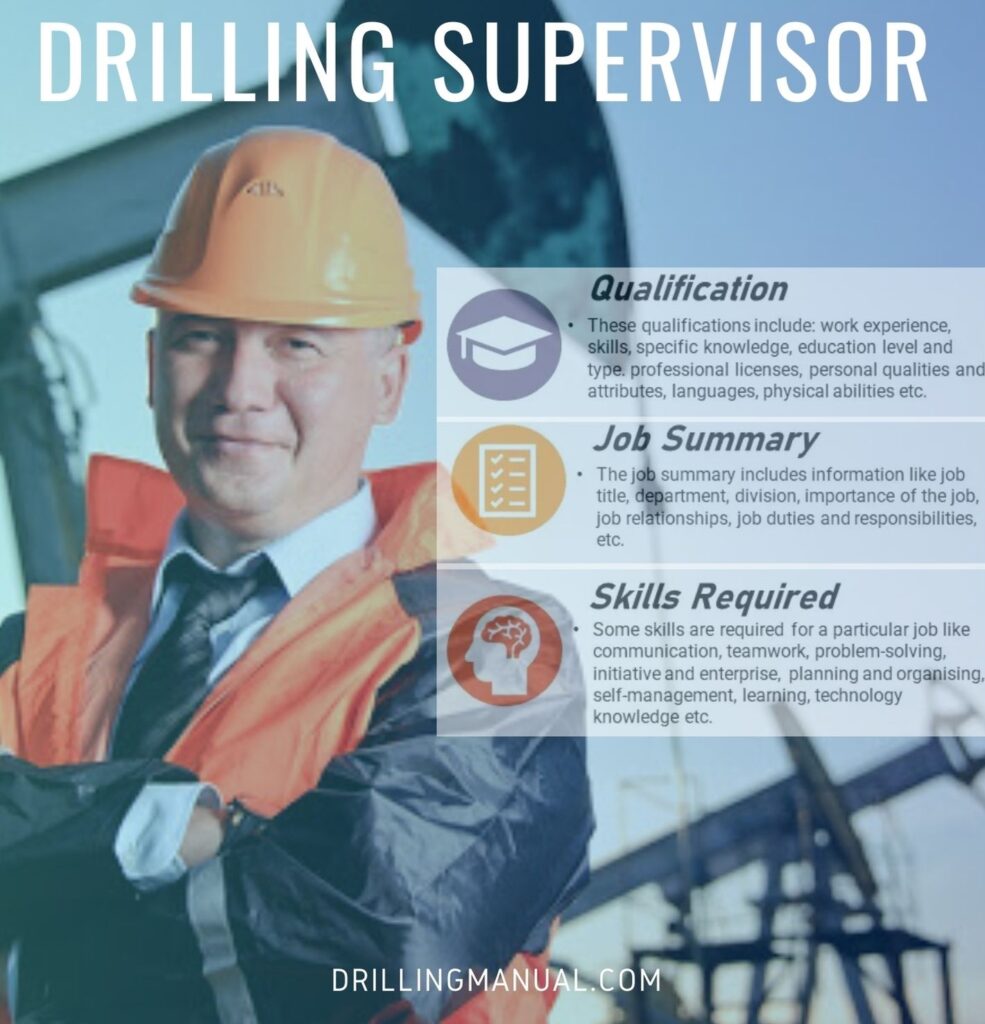
With extensive experience in drilling and a relevant field, the drilling supervisor plays a vital role in developing processes and the smooth operations of any type of drilling rigs. Excellent communication skills are essential in coordinating with various stakeholders effectively and ensuring drilling projects’ cost-effective and timely completion.
Typical Drilling Supervisor Responsibilities
The typical responsibilities of a drilling supervisor involve overseeing and managing drilling operations on-site. This includes ensuring the safe and efficient execution of drilling activities, maintaining compliance with safety procedures, and coordinating with drilling crews, contractors, and service providers. A drilling supervisor develops processes and procedures for smooth operations and cost-effective outcomes.
Some specific tasks and duties associated with this role include:
- Daily drilling activities: Supervising and coordinating the execution of drilling activities daily, including the operation of onshore and offshore drilling rigs and equipment such as (mud pumps, solid control equipment, etc..)
- Communication and coordination: Facilitating effective communication between drilling crews, contractors, service providers, and other relevant parties to ensure the seamless flow of information and resources.
- Safety procedures: Enforcing and promoting adherence to safety rules and regulations to create a safe work environment for all personnel involved in drilling operations.
- Optimization and efficiency: Identifying opportunities for process improvement and implementing strategies to optimize drilling operations.
- Compliance and regulations: Ensuring compliance with industry standards, oil and gas company regulations, and best practices.
A drilling supervisor is essential in overseeing the daily activities of drilling operations. Their role is to ensure that all operations are conducted efficiently, safely, and in compliance with relevant regulations and standards..
Working Environment
The working environment of a Drilling Supervisor can be demanding and challenging. This role often involves working in remote locations, both onshore and offshore, where drilling operations occur. Drilling supervisors may spend extended periods away from home and work in harsh and extreme weather conditions.
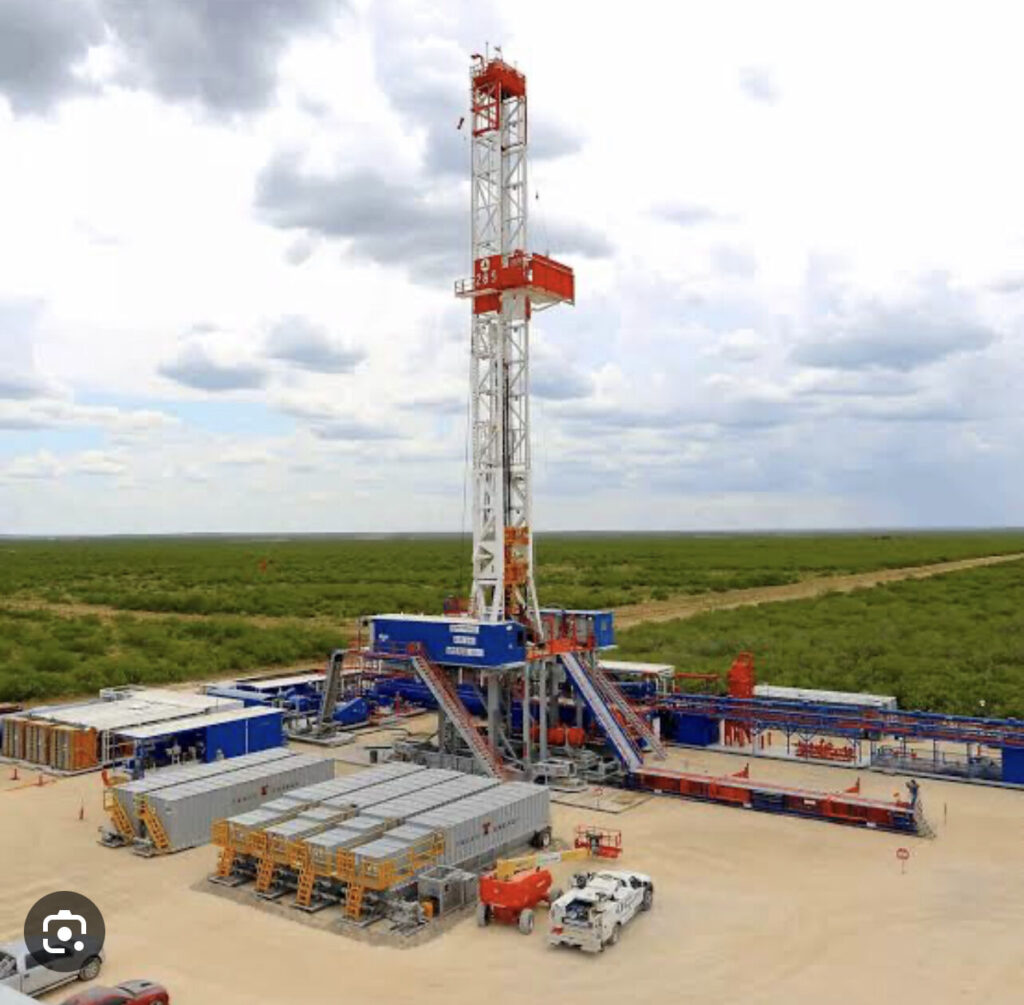
Source: Rigzone
- The physical demands of the job are significant. Drilling supervisors must be in good physical condition as they may need to climb ladders, walk on uneven terrain, and carry heavy equipment. The job also requires the ability to work long hours, including night shifts, as drilling operations can run continuously.
- There are potential dangers associated with this role. Drilling supervisors must know and mitigate the risks of working in a hazardous environment. They must adhere to strict safety procedures and ensure the proper use of personal protective equipment.
- Whether it is scorching heat, freezing temperatures, or heavy rain, drilling supervisors must withstand the elements to ensure smooth operations.
In conclusion, the working environment of a Drilling Supervisor requires physical stamina, the ability to work in all weather conditions, and the capacity to make swift decisions in emergencies. This role demands resilience, adaptability, and a solid commitment to safety.
Qualifications and Skills

To become a drilling supervisor, specific qualifications and skills are necessary. Usually, having a high school diploma is the fundamental prerequisite for most jobs. However, some positions may demand relevant educational qualifications or additional certifications. In addition, experience in drilling operations is a must for this role.
Supervisors must know extensively about drilling equipment, techniques, operations, and safety rules. Communication & management skills are essential to effectively communicate with the drilling crew, contractors, and service providers. Being detail-oriented, having problem-solving skills, and working well under pressure are essential for such a position.
Education and Training Requirements For a Drilling Supervisor Role
Specific education and training requirements must be met to become a drilling supervisor. Completion of secondary school is a minimum requirement for this role. In addition to this, aspiring drilling supervisors must also complete college or petroleum industry-approved training courses.
To excel in this role, it is imperative for drilling supervisors to possess the necessary certifications and training. These certifications enhance their expertise and enable them to make informed decisions. Standard certifications for drilling supervisors include first aid, blowout prevention, and well control.
- First aid training ensures that drilling supervisors are well-equipped to handle any emergencies on the site.
- IWCF or IADC well control training ensures safe drilling operations.
- HSE Courses
- H2S Courses may be required in wells that have H2S problems.
Supervisor Technical Knowledge and Experience in Drilling Operations
A drilling supervisor should have extensive experience in drilling activities and a strong background in drilling engineering.
A deep understanding of drilling rigs, equipment, and processes is essential. They should possess sound drilling engineering methods and be able to plan and execute assignments effectively. In addition, they should be familiar with directional drilling, cementing, fishing, and other drilling formula calculations. This requires expertise in various drilling techniques and knowledge of the specific requirements of different drilling projects. Some projects may need experience in HPHT wells. Others may require working offshore or underbalanced drilling. Good knowledge of mud types and drilling fluid properties is a must.
A drilling supervisor should also have a firm grasp of safety procedures and regulations to ensure the safe and efficient execution of drilling activities. They must identify and mitigate potential risks and be familiar with relevant safety rules and industry best practices.
Communication and Management Skills

Practical communication skills are essential for drilling supervisors to interact successfully with drilling crews, contractors, service providers, and other stakeholders.
Teamwork is another critical skill for a drilling supervisor. They must foster a collaborative environment among the drilling crew. In addition, they shall ensure that all members work together efficiently to achieve the project goals. Strong leadership skills are also necessary to effectively coordinate and motivate the team and provide guidance and support.
Drilling operations, by their nature, are full of problems such as pipe sticking, mud losses, or well kicks. Problem-solving and decision-making abilities are vital for drilling supervisors. This is because it will assist in handling any challenges or unexpected situations. They must be able to think quickly on their feet, assess the situation, and make sound judgments.
Drilling Supervisor Job Duties and Responsibilities
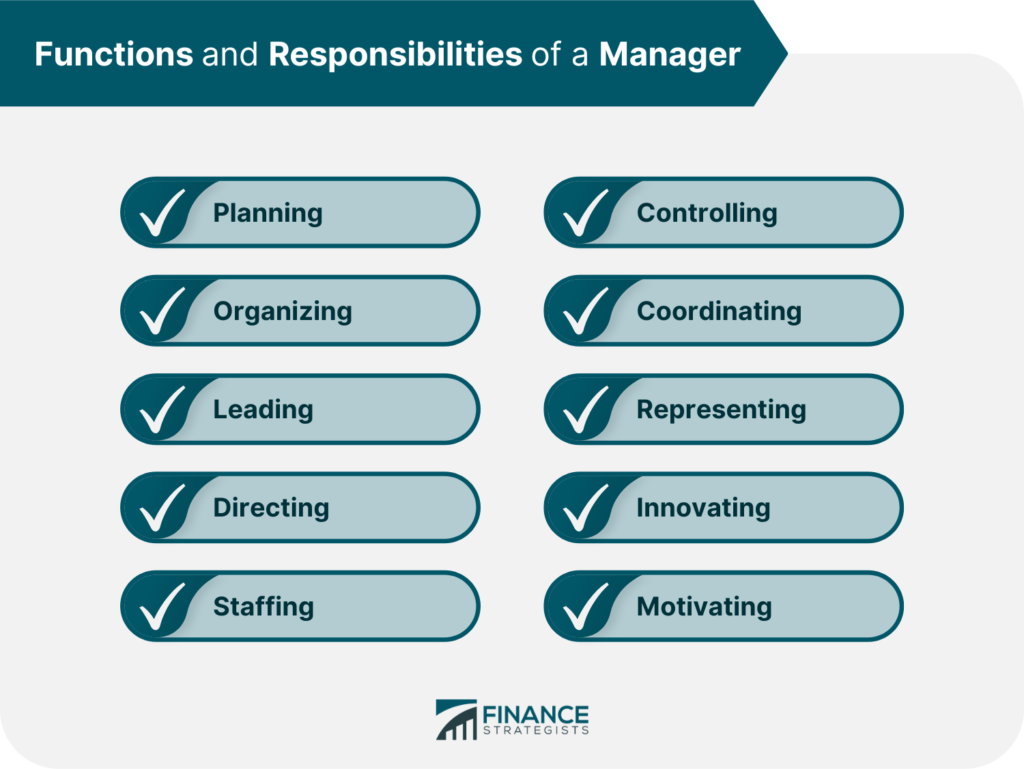
As a drilling supervisor, my primary responsibility is to oversee and manage all aspects of drilling operations. This includes leading a drilling crew, coordinating drilling activities, and ensuring the efficient execution of drilling projects. The drilling supervisor is responsible for the execution of the well drilling program, including the well trajectory plan, mud, cement, and drilling bits programs.
Additionally, they may be required to monitor and analyze drilling data, identify areas for improvement, and implement corrective actions to optimize drilling operations.
Supervise Daily Drilling Activities
A drilling supervisor manages the rig operations to meet company standards and prevent accidents.
One of the primary responsibilities of a drilling supervisor is to closely monitor drilling operations, evaluate productivity, and maintain smooth operations throughout the drilling process. They must exercise sound drilling engineering methods and constantly assess the progress of the drilling activities. This involves monitoring drilling rigs, evaluating drilling parameters, and making adjustments as necessary to optimize performance.
Additionally, a drilling supervisor is responsible for coordinating with other departments on-site, such as logistics and production, to ensure seamless collaboration and effective communication. They are also tasked with overseeing equipment maintenance, troubleshooting any issues that may arise, and addressing any challenges encountered during the drilling process.
A drilling supervisor’s role is multifaceted, requiring strong leadership, communication skills, and experience in drilling operations. They are essential in maintaining a safe work environment, efficient execution of drilling activities, and developing processes to maximize productivity and cost-effectiveness in extracting natural resources.
Ensure Efficient Execution of Drilling Activities
- To ensure the efficient execution of drilling activities, a drilling supervisor follows a systematic approach and implements various strategies.
- Firstly, coordination with contractors is crucial. The supervisor collaborates closely with drilling contractors to ensure they have the necessary resources, equipment, and personnel to complete the drilling operation successfully. Regular communication and clear instructions are maintained to ensure everyone is on the same page.
- They will also oversee the bi-weekly pressure and function test of the BOP, sign off on records and pressure charts, and ensure proper certification is available on-site.
- It is essential for the rig supervisor to review the drilling program before the start of operations. This will assist in ensuring equipment and personnel are capable of error-free work.
- Continuous monitoring of ongoing processes is another essential step. This can be done by monitoring drilling parameters, equipment, and safety procedures and fixing issues and inefficiencies as they arise.
- Drilling supervisors evaluate service providers to ensure compliance with regulations, operational standards, and production goals.
- Furthermore, they will accurately record all daily activities and costs for future analysis and performance improvement.
Develop Processes for a Safe Work Environment
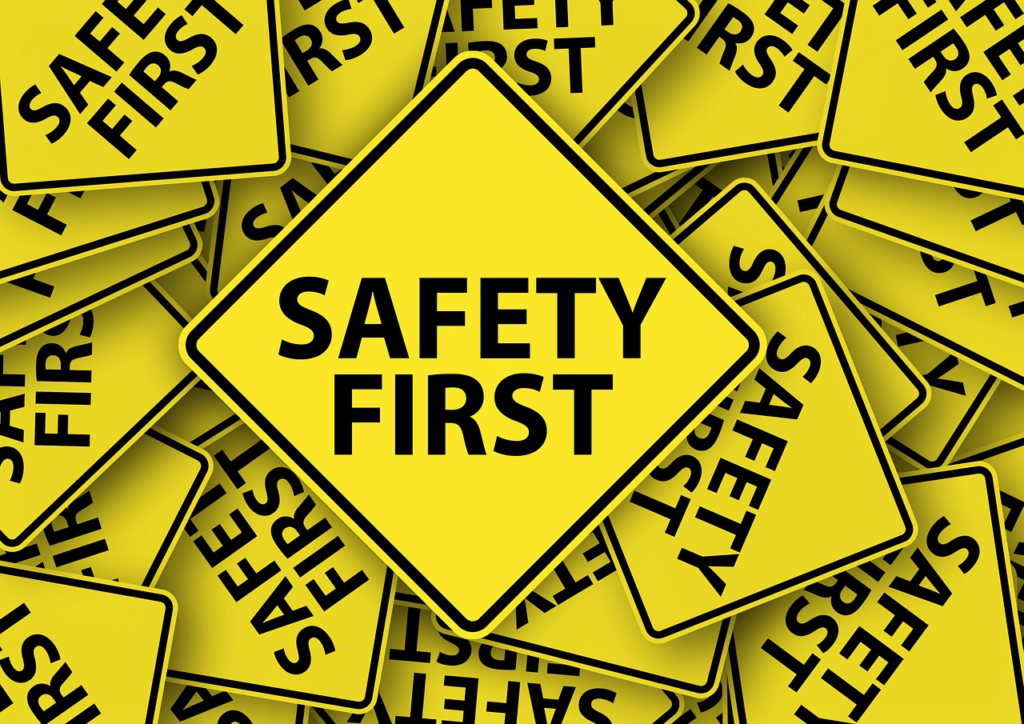
Developing processes for a safe work environment is a crucial responsibility of drilling supervisors. Adhering to safety rules and regulations is of utmost importance to protect the well-being of the drilling crew and ensure the success of drilling operations.
Ensuring the safety and well-being of all individuals at the rig site is of utmost importance. As a leader, it is essential to actively demonstrate a commitment to HSE and maintain a safe working environment. This involves actively participating in pre-job safety meetings with drilling contractors and ensuring that any HSE incidents are thoroughly addressed and closed out. By prioritizing safety, we can ensure that all rig operations are conducted with the highest level of precaution and care.
Drilling supervisors must implement comprehensive safety procedures and protocols for a safe work environment. These protocols can include guidelines for personal protective equipment (PPE), proper equipment usage, emergency response plans, and rig hazards identification and mitigation. Clear communication of these procedures to the drilling crew is essential.
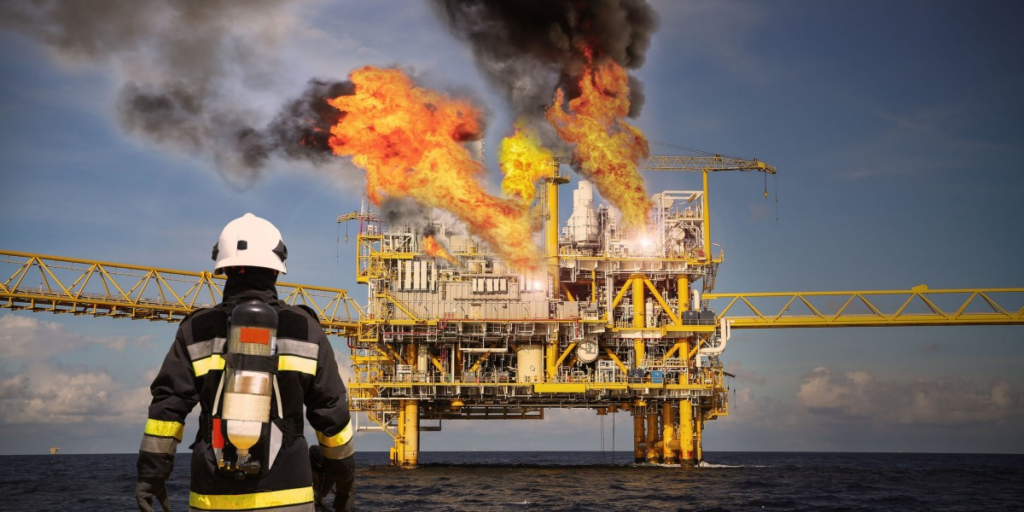
Regular safety inspections are crucial in detecting and resolving potential hazards or safety concerns. Inspecting drilling equipment, rig structures, and work areas can prevent accidents and ensure a secure work environment. Any deficiencies or hazards found during inspections must be addressed immediately to maintain safety protocols.
Manage Service Providers and Contractors
One key aspect of managing service providers and contractors is evaluating and selecting the right ones for the job. Drilling supervisors must have extensive experience and knowledge in the drilling industry to assess different contractors’ capabilities and track records. They need to consider factors such as the contractor’s experience in drilling, their level of education and training, and their adherence to safety procedures.
Once contractors are selected, drilling supervisors ensure they comply with all safety rules and regulations. This involves regular safety inspections and audits to verify that contractors follow the necessary safety procedures and use the required protective equipment. Any safety deficiencies or hazards identified during these inspections must be addressed promptly to maintain a safe work environment.
Furthermore, drilling supervisors are responsible for managing the performance of contractors. This includes monitoring the quality of their work, ensuring that they meet project deadlines, and resolving any issues or disputes that may arise. Regular communication and feedback are essential to maintain a productive working relationship with service providers and contractors.
In conclusion, managing service providers and contractors is integral to the drilling supervisor’s role. By evaluating and selecting contractors, ensuring safety compliance, and managing performance, drilling supervisors contribute to the efficient and safe execution of drilling operations.
Monitor Natural Resources Usage during Drilling Operation
As a drilling supervisor, one of the key responsibilities is to monitor and manage the usage of natural resources during drilling operations. This involves ensuring that water, fuel, and drilling fluids are used efficiently and responsibly to minimize waste and environmental impact.
To ensure efficient usage of natural resources, drilling supervisors can take several actions. Firstly, they can implement proper planning and forecasting techniques to estimate resource needs for each drilling operation accurately. This helps to avoid overconsumption or shortages of resources. Supervisors can closely monitor drilling activities and equipment to identify any inefficiencies or areas where resource usage can be optimized. For example, they can track water consumption and implement recycling or treatment systems to minimize freshwater usage.
Drilling Supervisor Job Vacancies
Drilling supervisor job vacancies are available in the oil and gas industry, providing opportunities for individuals with a high school diploma.
Top oil and gas companies frequently hiring drilling supervisors include Akita Drilling, Savanna Drilling LLC, and Timberline Drilling Inc. These companies are known for their efficient execution of drilling activities and adherence to safety procedures.
Candidates interested in applying for such a position should prepare a well-crafted rig supervisor resume highlighting their experience in drilling and relevant fields. Resumes should demonstrate the ability to oversee daily drilling activities, coordinate drilling crews, and ensure the smooth operations of drilling rigs. Additionally, experience in working with drilling contractors and service providers is highly valued.
Below is a simple list of oil and gas recruiting agencies that offer job vacancies for rig supervisors:
- Rig Zone
- Oil & Gas Job Search
- Indeed – Indeed has several website addresses according to your country (SA – UK – US – CA)
- PetroPlan
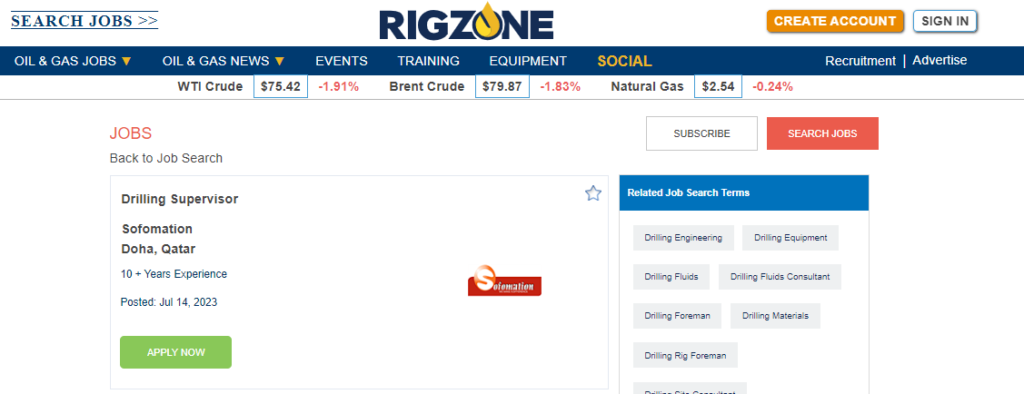
Expected Salary
The expected salary for drilling supervisors is highly competitive, reflecting the level of responsibility and expertise required for this role. According to salary data, the median annual salary for drilling supervisors is around $83,000. However, top-performing drilling supervisors can earn over $120,000 or more annually.
In addition to the base salary, drilling supervisors often have the potential to earn additional compensation in the form of bonuses. Bonuses are typically performance-based and can vary depending on factors such as the successful completion of drilling projects, achievement of safety targets, and overall efficiency in operations.
For drilling supervisors in Newfoundland and Labrador, the hourly wages range from approximately $35 to $45. However, it is essential to note that these figures can vary depending on experience, qualifications, and location.
The growth outlook for drilling supervisors is promising due to the increasing oil and natural gas demand. As energy companies strive to maximize their production and tap into new reserves, the need for skilled drilling supervisors continues to rise. This growth can lead to more significant opportunities for career advancement and potential salary increases for individuals in this field.
Table: Average Salary for Drilling Supervisors in 20 Oil and Gas Countries
| Country | Average Salary (USD) |
| United States | $100,000 |
| Canada | $80,000 |
| Saudi Arabia (Saudi Arabia Oil History) | $90,000 |
| United Arab Emirates | $95,000 |
| Qatar | $85,000 |
| Norway | $110,000 |
| Australia | $95,000 |
| Kuwait | $90,000 |
| Russia | $70,000 |
| Mexico | $75,000 |
| Brazil | $80,000 |
| Angola | $90,000 |
| Nigeria | $85,000 |
| Iraq | $80,000 |
| China | $75,000 |
| India | $70,000 |
| Argentina | $75,000 |
| Indonesia | $70,000 |
| Venezuela | $80,000 |
| Iran | $85,000 |
Conclusion
Drilling supervision is critical for smooth and efficient operations. A drilling supervisor oversees drilling, manages crews, and ensures safety compliance. This career offers advancement opportunities as the demand for oil and gas rises, with the potential for starting their own companies. Experience and certifications in health control, offshore survival, and drilling techniques are necessary for success. This field provides the chance to significantly impact the drilling industry and achieve career growth.